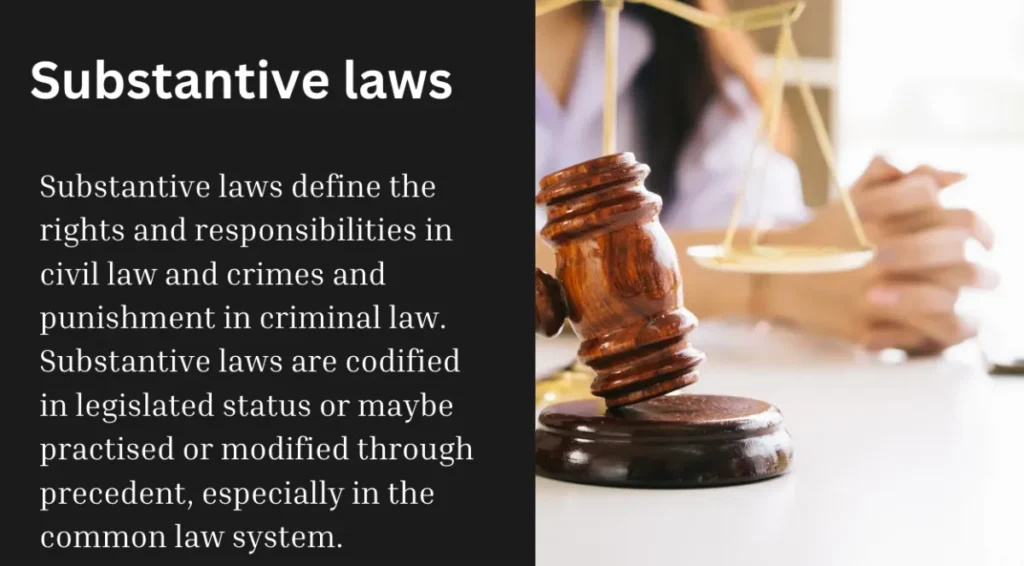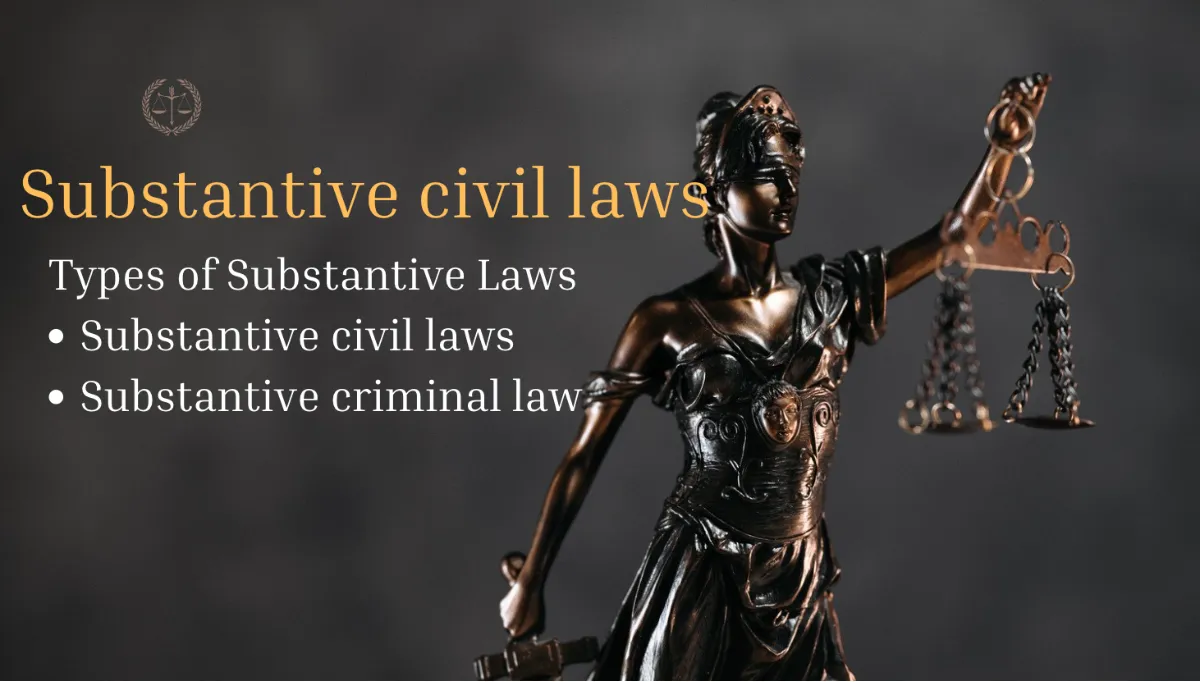Substantive laws define the rights and responsibilities in civil law and crimes and punishment in criminal law. Substantive laws are codified in legislated status or maybe practised or modified through precedent, especially in the common law system. These laws also can be enacted through the initiative process. Substantive laws refer to the actual claims and defence is to refer to in any case.

Table of Contents
Nature of substantive laws
- Substantive law deals with those areas of law that establish the rights and obligations of individuals and what individuals may or may not do.
- These laws have independent power to decide any case.
- Substantive laws dictate the legal context of any crime such as how the case will be handled and what specific punishments to be given for any crime.
- Statutory laws or precedents in the common law system are substantive laws.
- These laws deal with the legal relationship between individuals or the legal relationship between an individual and the state.
- Substantive laws are the statutory laws that define and determine both the rights and obligations of the citizen to be protected by law and the crimes or wrongs and their remedies.
- Substantive laws determine the subject matter of litigation about the administration of justice.
Sources of Substantive Law
The Substantive law is usually derived from:
- The principles in common laws which already exist codified statuary laws.
- Constitution
- Judicial precedents in cases with similar facts and circumstances.
Substantive laws are also derived from various treaties that dictate the condition of the law. One such example of the regulations and directives of the European Union followed by the trade treaties, rules of the WTO and bilateral treaties. other sources of substantive laws include:
- The writing of legal scholars in civil law, and academic writing who explain or interrupt the constitution or law influence the decision of the court.
- EDICTS from a king’s rule.
- “Sharia Law” In religious books and edicts in the case of some of the Islamic countries
Types of Substantive Laws
The substantive law defines both the right and the wrong and the punishment or remedy for it. The law includes all the categories of public and private law also including both substantive civil and criminal laws.
Substantive civil laws
Substantive civil laws are the laws that deal with disputes between any individuals, organisation or between where the victim is entitled to compensation. Using substantive civil laws, the courts find out whether the legal rights of the Plaintiff have been violated or not.
The plaintiff should have to prove that he/she has gone through damages or has suffered injury by using the relevant Substantive civil laws. If the plaintiff is successful in proving he/her attorney substantive civil laws would be used to compensate the plaintiff for any injury or harm caused accordingly. Substantive civil laws do not provide any constitutional protection to any of the parties but provide the right to appeal to both parties.
Substantive criminal law
Substantive criminal law deals with criminal offences and the punishment to be awarded for each of these criminal offences. A Criminal prosecution starts after the defendant violates any criminal statute. The primary purpose of substantive criminal laws is to provide punishment to the convict well compensation may be provided to the victim depending on the situation. Using substantive criminal laws, the court finds out whether the accused is guilty or not and if found guilty what should be the punishment for the criminal offences.
Unlike Substantive civil laws, Substantive criminal laws offer Constitutional protection to the accused from the very beginning of the trial. however, here only the defendant can appeal instead of both the parties as in the case of Substantive civil laws.
Limitations of Substantive Laws
- Elements of substantive laws sometimes act as an obstacle to accessing justice some elements of substantive law which are unfavourable to any litigant will constitute an impediment to justice.
- Substantive laws can be used to limit and restrict the power and freedom of any individual.
- The state possesses the uncontrolled and unlimited power to frame laws according to its own will which the judiciary is bound to follow.
Also View: What is the importance of business law?

